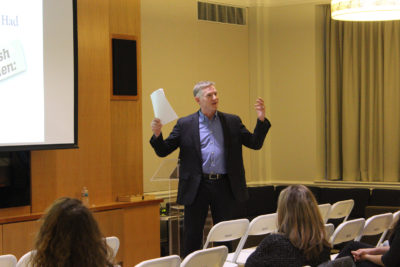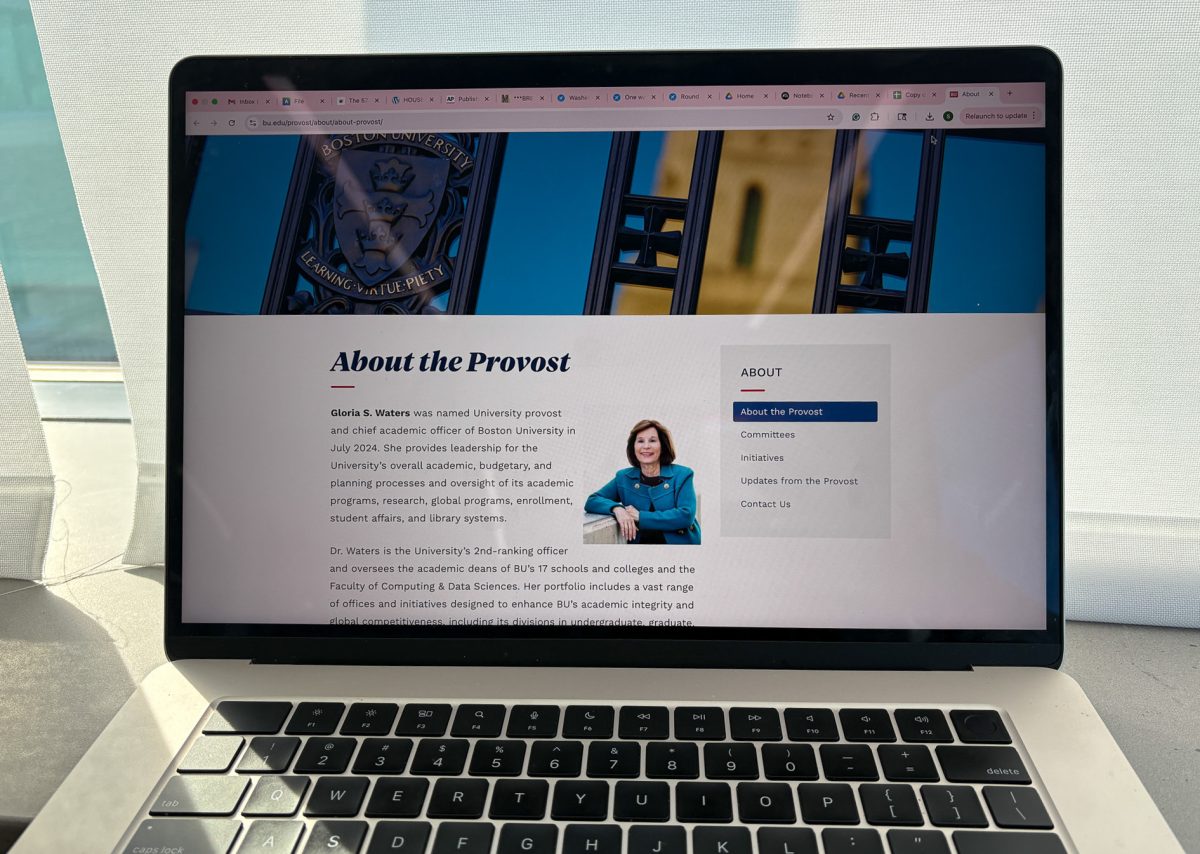
Oxford University Press President Niko Pfund delivered a presentation on professional success Thursday evening at Kilachand Hall, revealing career tips he said he wished he would have known when he was younger.
The presentation, titled “22 Things I Wish I Had Known When I Was 22,” was organized by the Boston University Center for the Humanities and co-sponsored by the College of Arts and Sciences and the Arvind and Chandan Nandlal Kilachand Honors College.
Pfund provided insight into numerous tools crucial for leading a successful career to the approximately 60 listeners. He conducted the presentation through a series of displayed steps that he felt were important for both aspiring and current professionals. Several of the steps mentioned involved embracing fear, challenging one’s most firmly-held convictions and striving for integration and purpose.
The same opportunities that sometimes inspire fear, Pfund said, are the very ones that push people to grow the most, and such opportunities should be welcomed.
“I think there is clarity in being given responsibilities that you don’t think you can handle,” Pfund said. “It’s something to try to embrace and seek out.”
Pfund also encouraged the audience to question monocausal thinking and avoid confirmation bias — the tendency to interpret new evidence as supporting personal beliefs.
“There are three forces among our species that are more powerful than any other,” Pfund said, “and [they are] self-interest, love and confirmation bias.”
Pfund said young professionals ought to actively confront and challenge their strongest and most deeply rooted opinions in order to succeed.
“I think one of the difficulties that we all struggle with and don’t succeed at is challenging our own convictions,” Pfund said.
Susan Mizruchi, the director of the BU Center for the Humanities and a professor of English literature, said that Pfund, in addition to leading a successful career, has noticeably excelled in the arts of authenticity and networking.
“He is someone who has made a career and made a point of being as honest and direct with people as he can be and building trusting relationships with a lot of [professionals] in the country,” Mizruchi said of Pfund after his presentation.
Mizruchi added that she found Pfund’s perspective toward fear to be incredibly accurate.
“I also liked what [Pfund] said about the upside of fear — that it’s very useful to be given responsibilities that you think you can’t handle,” Mizruchi said. “There are experiences in your work life that really force you to grow in ways you never could have imagined and I thought that was very compelling.”
Several listeners said they appreciated Pfund’s straightforward attitude when it came to sharing personal experiences that transformed his career.
Greg McKnight, a CAS senior, said he went to Pfund’s presentation with the goal of expanding his publishing skills and that he loved Pfund’s approach to the presentation.
“I told [my professor] I was interested in publishing a while ago, and she happened to remember that,” McKnight said. “It’s a great connection and I came to get my foot in the door. [Pfund] was very aware that sometimes he won’t have answers.”
Anna Bottrell, a sophomore in CAS, said she liked Pfund’s candor as he discussed his own shortcomings and realizations in the early stages of his career.
“I liked how he took this from a level of personal sincerity and it didn’t seem very cliché in the way that a lot of self-help books are,” Bottrell said. “I liked how he seemed to challenge himself with all of the points that he put out.”
Similarly, Reilly Jamison, a junior in the Questrom School of Business, said she enjoyed the fact that all of Pfund’s tips were the result of actual career experiences.
“I really liked all of the points that he gave, and there was nothing that I disagreed with or questioned, which I appreciated,” Jamison said. “It seemed all founded on experience.”
























































































































